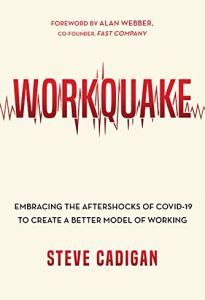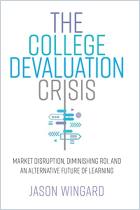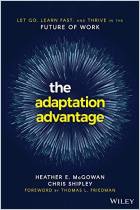Únase a getAbstract para acceder al resumen.

Únase a getAbstract para acceder al resumen.
Steve Cadigan
Workquake
Embracing the Aftershocks of COVID-19 to Create a Better Model of Working
Amplify, 2021
¿De qué se trata?
An HR pro explains how to make progress in the fast-changing world of work.
Recommendation
Are a pricey education, a good job, hard work and company loyalty your tickets to success? Alas, talent strategist Steve Cadigan says, those notions are obsolete. A top college education may not be worth the time, money and worry anymore, he contends. Job hopping has replaced loyalty as the path forward. If you’re navigating the job market or wondering why younger colleagues do things differently, Cadigan offers solid answers. Despite the subtitle’s reference to COVID, he doesn’t cover the pandemic’s impact in depth here – just a few mentions. However, his advice remains highly relevant to a post-pandemic work landscape.
Summary
About the Author
Steve Cadigan has more than 30 years of HR experience with a variety of corporations, including several venture capital firms.























Comment on this summary